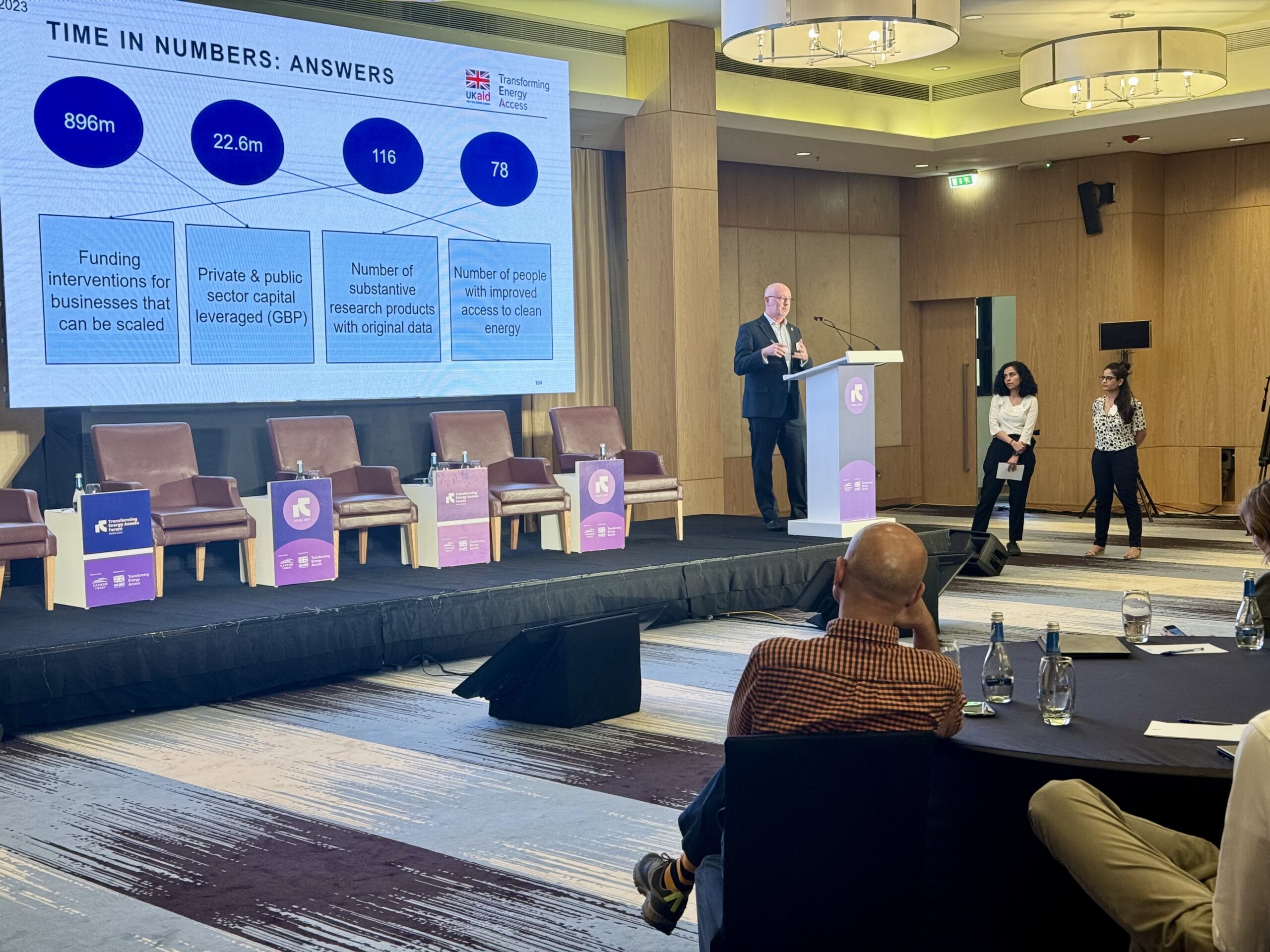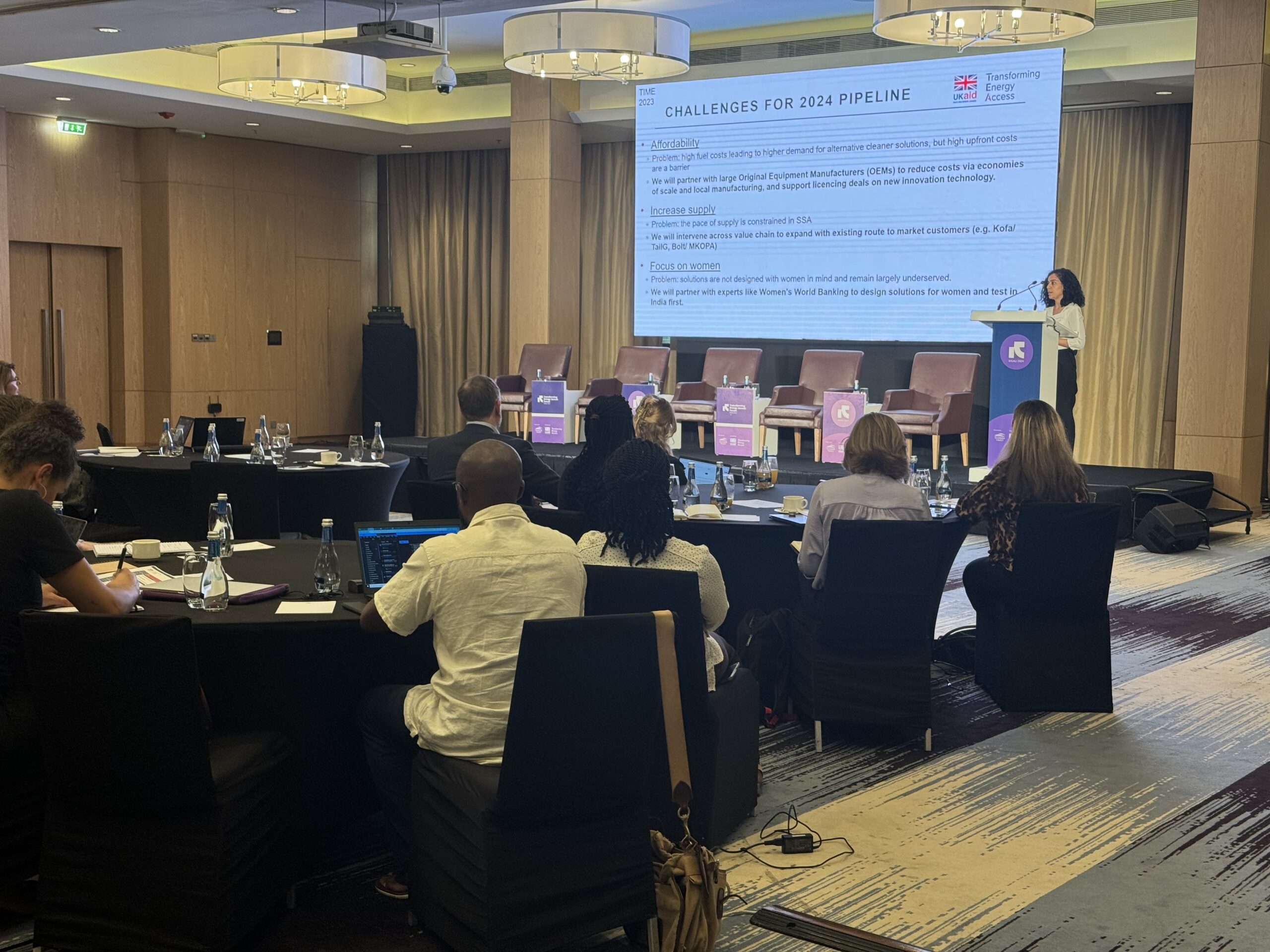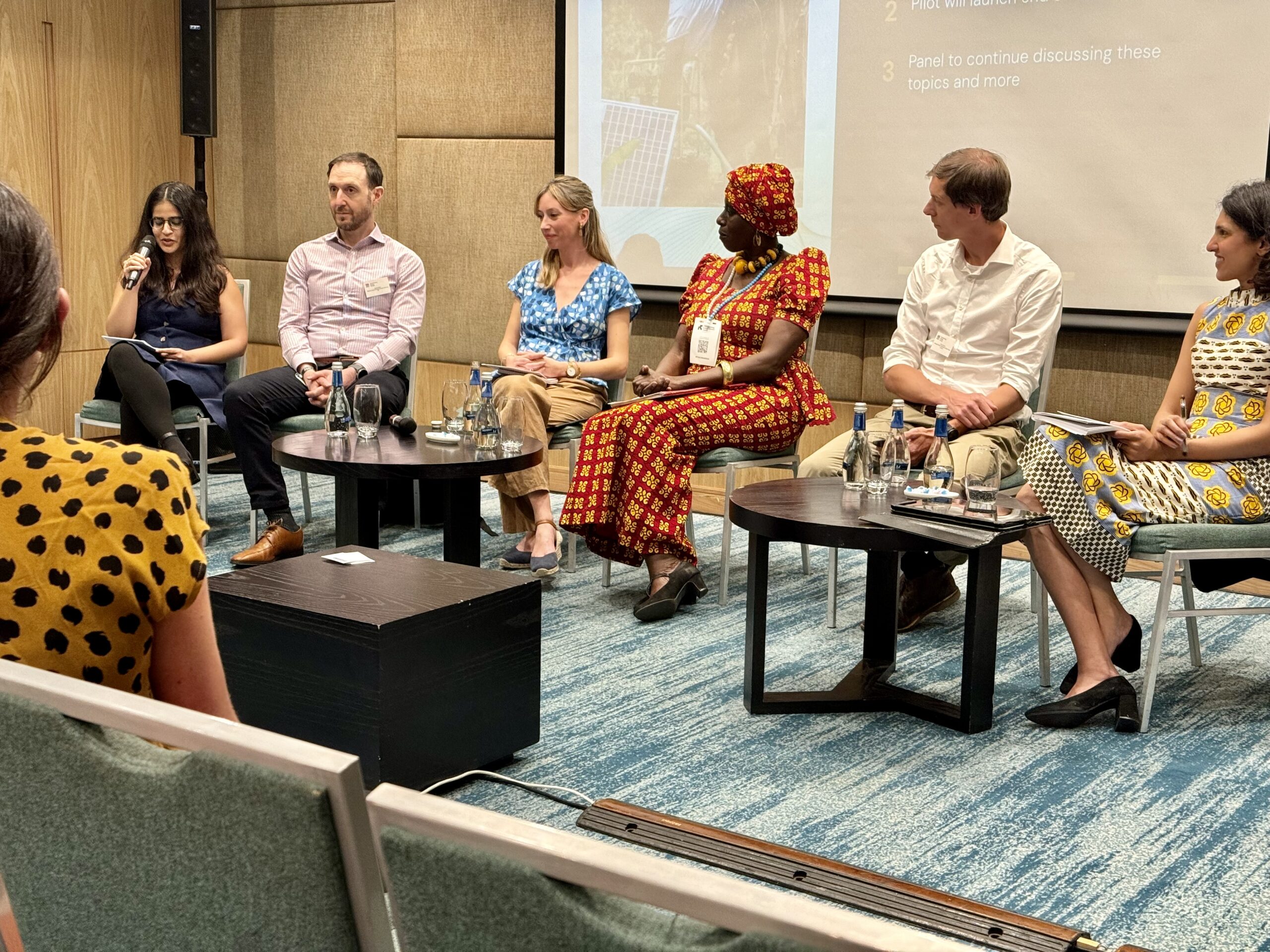TEA Forum highlights critical need for partnerships in scaling clean energy
Impact Delivered Through the Transforming Energy Access Platform
In Kigali, Rwanda earlier this month, the Shell Foundation team joined the UK’s Foreign, Commonwealth and Development Office (FCDO) and the Carbon Trust at the first in-person meeting of the Transforming Energy Access (TEA) Platform since 2019.

The TEA Forum brought together individuals and business partners who are part of the TEA platform and the wider Ayrton Fund, which supports clean energy research, development and demonstration to accelerate the clean energy transition in developing countries. At the TEA Forum, we met with partners like Odyssey Energy Solutions, EchoVC Partners and Davis & Shirtliff to discuss current and future solutions to clean energy access.
Within the TEA Platform, Shell Foundation co-funds the Transforming Inclusive Energy Markets (TIME) initiative alongside FCDO. Our FCDO Strategic Partnerships Manager, Duncan Hart, explained our role within the platform through the TIME project, which since 2016 has:
- Provided 22.6 million people with improved access to clean energy.
- Made 116 funding interventions for businesses that can be scaled.
- Leveraged £896 million in additional private and public sector capital.
- Produced 78 substantive research products with original data.
Duncan highlighted “The flexibility of the partnership to respond with agility to changing demands is a major strength of the programme. For instance, we know that our customers are facing increasing fuel costs, and therefore, there is a high demand for alternative cleaner solutions, but high upfront costs are a barrier for their growth.. Building on these lessons, this year we are moving forward with a focus on the affordability and viability of solutions, and the adaptable design of the TIME programme allows us to do this.”
Supporting and investing in innovative finance structures
Over the course of the Forum, the team spoke on panels focusing on innovative financing and empowering women.

Our Head of Portfolio for Micro-entrepreneurs, Tanya Kothari, spoke at the “Innovating Finance to Accelerate Energy Access” session alongside speakers from Acumen, Energy 4 Impact, and GreenMax Capital Group. Tanya highlighted TIME investments and the strategic deployment model, focusing on our innovative partnership with SunCulture and BII.
Tanya highlighted how our partnership with SunCulture made climate-smart irrigation products more accessible for smallholder farmers in Kenya by leveraging carbon credits which meant the farmers could reduce the total cost of owning solar water pumps by 40%. This example showcased how we support and invest in innovative finance structures that address supply, demand, affordability and gender.
Investing in Women Can Unlock Significant Economic Value
Another panel, “Powering the Future: Supporting Women’s Livelihoods Through Clean Energy Access,” featured our Business Development Director for Micro-entrepreneurs, Shveta Sarin, speaking on the benefits of investing in women. The event officially launched the new report and pilot programme entitled “Results-Based Financing for Productive Use Appliances to Promote Gender Outcomes.”

The report was produced in partnership with CrossBoundary Group and Odyssey Energy Solutions, with co-funding from Foreign, Commonwealth and Development Office through its Transforming Energy Access platform, showed how focusing on income, time, and health as metrics to measure women’s livelihood improvements can unlock significant economic value. As well as this, by prioritising gender outcomes in energy programmes, we can focus on the transformative potential for women’s economic empowerment and the pivotal role of targeted initiatives and financing.
The pilot programme will explore gender-focused approaches in productive use of energy. The potential is clear: an estimated $189 million in result-based financing could generate nearly $3 billion in economic value for 11 million women by 2030.
With these types of market-building incentives, such as results-based financing programmes or initiatives like the Carbon Value Exchange, we can increase focus on clean energy solutions targeted towards improving women’s livelihoods.
Leverage scale for the individuals
Gatherings such as the TEA Forum are critical to strengthening and building new partnerships that will create innovative financing and scale innovative and inclusive energy solutions for millions of under-served consumers. At Shell Foundation we are incredibly proud of the impact our partnership with the FCDO has been able to deliver and recognise the impact and thought leadership that our portfolio of solution providers and scale partners bring.
















